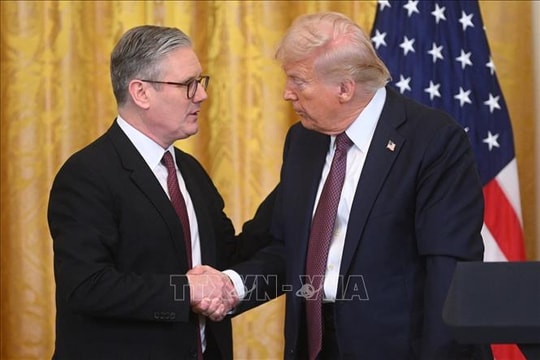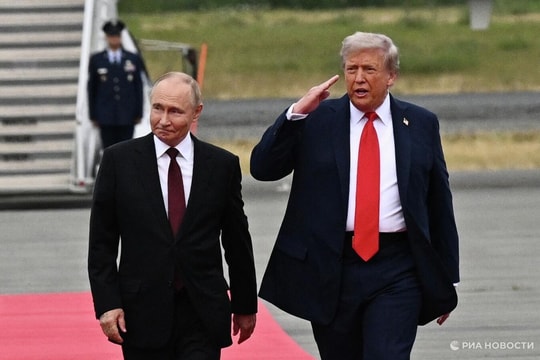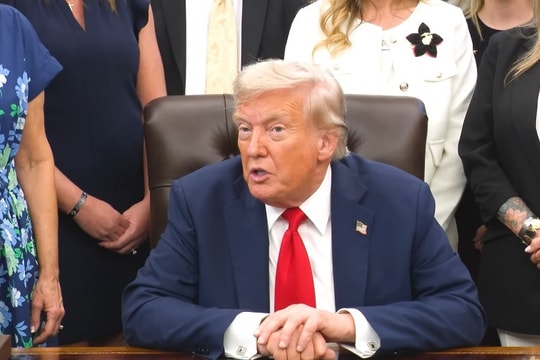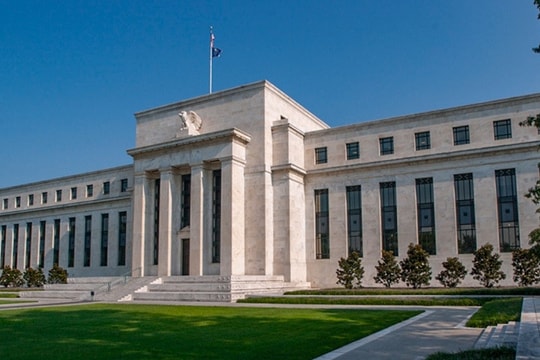US President 'declares war' on social media
(Baonghean) - On May 28, just a few days after Twitter labeled two status lines on his personal page as "potentially misleading", US President Donald Trump decided to sign an executive order targeting social media companies, with the statement that it aimed to "protect freedom of speech from one of the greatest dangers it has ever faced in American history".
President Trump's Fury
The "incident" began on May 26, when Twitter - one of the most popular social networks today - automatically assigned a warning asking users to verify information in two of Mr. Trump's posts, one of which contained content related to postal voting in the context of the upcoming election in the midst of the Covid-19 pandemic.
Almost immediately, the White House boss “fired back”, accusing the social media giant of abusing its censorship power and warning that if the company continued to add “appendices” to its messages, he would use the power of the Federal Government to restrain or even shut it down.
Just two days later, public opinion was abuzz with the news that the US leader had issued a new executive order, accompanied by his statement: “A few social media monopolies control a large portion of public and private communications in the United States. They possess unchecked power to censor, restrict, edit, shape, conceal, alter, virtually any form of communication between individual citizens and the public at large.”
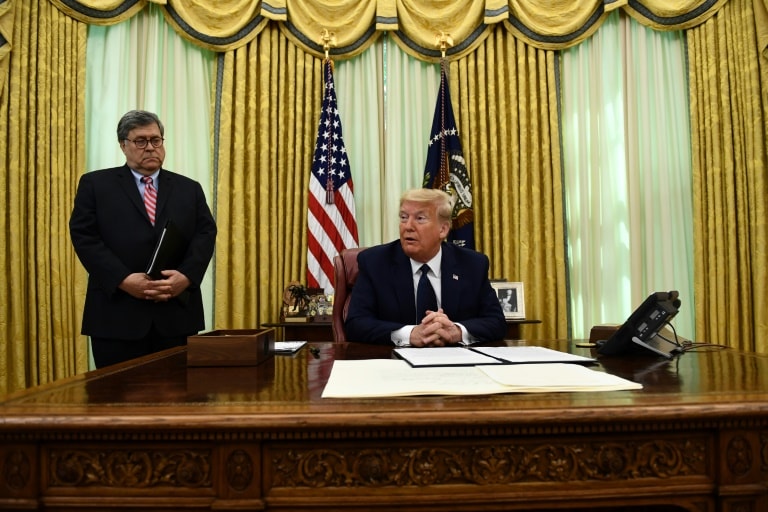 |
| President Trump prepares to sign an executive order on social media companies in the Oval Office on May 28. Photo: AFP |
CNN news agency said that the content of the above executive order targets the Communications Decency Act (CDA) issued in 1996. Section 230 of the CDA grants immunity to websites that manage and regulate their own platforms, and is described by legal experts as "the 26 words that created the internet".
Under an executive order just signed, the US Department of Commerce will require the Federal Communications Commission (FCC) to issue new regulations clarifying when a company's activities may violate the honesty provisions of Section 230 of the Communications Decency Act, a move that is expected to make technology companies more vulnerable to lawsuits.
The order also directs the Justice Department to consult with state attorneys general regarding allegations of bias against conservative views; and prohibits federal agencies from advertising on platforms accused of violating the provisions of Section 230.
Finally, the order directs the Federal Trade Commission (FTC) to report complaints of political bias collected by the White House and to consider suing companies accused of violating Section 230 as interpreted by the Trump administration. However, the provisions related to the FTC could raise legal questions, as the FTC is considered an independent agency that does not take orders from the President.
Thus, in the eyes of observers, the decree is a test of the limits of the White House's authority, seeking to limit the power of large social media platforms through reinterpreting regulations that are considered a "shield" to protect websites and technology companies from lawsuits.
However, legal experts on both the left and right have raised serious concerns about the proposal, arguing that it could be unconstitutional. “Trump is trying to strip the courts and Congress of the power to rewrite decades-old laws,” said Democratic Oregon Senator Ron Wyden, the architect of the CDA. “He’s deciding what’s legal based on what’s convenient for him.”
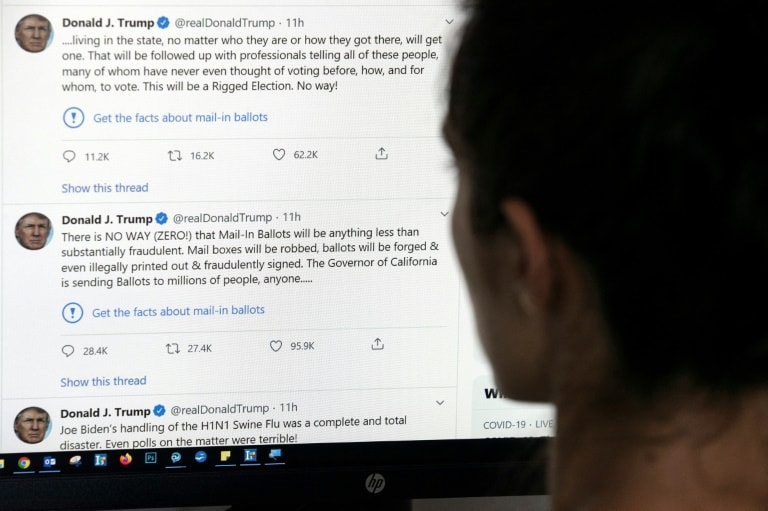 |
| Mr. Trump's post about voting by mail was labeled as requiring fact-checking. Photo: AFP |
The war on social media
Also according to CNN, the new decree signed by Trump marks a sudden escalation in the leader's war with technology companies, in the context that these companies are struggling with the problem of fake information on social media.
Trump has repeatedly accused social media sites of political bias and censoring conservative voices. In response to the new information, technology companies such as Facebook and Google said that Trump's proposal poses a risk of harming the internet and the digital economy.
“By holding companies potentially liable for everything that billions of people around the world say, this punishes companies that choose to allow controversial speech and encourages platforms to censor anything that might anger anyone,” Facebook spokesman Andy Stone said in a statement.
Riva Sciuto, representing Google, said: “Undermining Section 230 in this way would hurt the US economy as well as America’s global leadership role in internet freedom.” Meanwhile, Twitter “insiders” said that the US President’s decree has “political undertones”…
But given what we know about Mr. Trump’s character, perhaps, as some have suggested, he himself sees this as a “war” that must be waged. The US President’s new tiff with Twitter only reinforces his personal view that there are powerful forces in the media united against him, and that his voice is the only one his supporters can trust.
Jason Miller - Communications Director of Trump's 2016 campaign and the person directly involved in the White House owner's social media strategy commented: "This situation is beneficial to President Trump. Basically, they have given him a big gift."
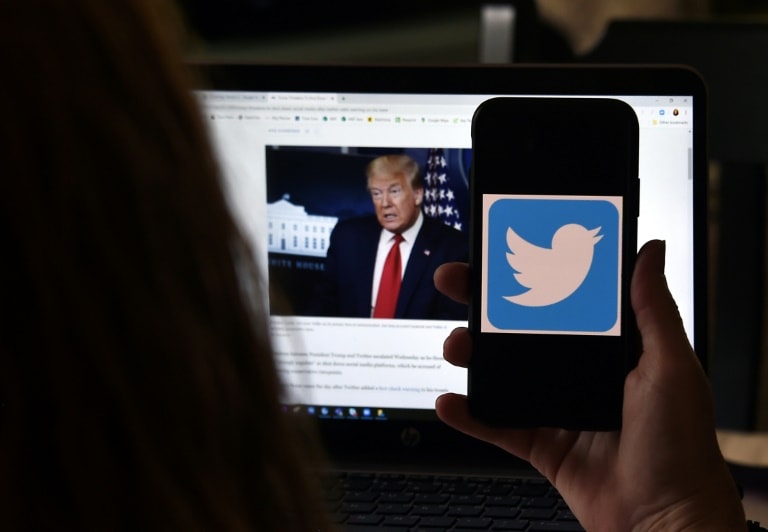 |
| Twitter's move to label Mr Trump's posts with warnings has sparked an angry response from the White House. Photo: AFP |
On May 27, many political allies also voiced their support for him, such as Florida Congressman, a Republican Matt Gaet, who said: “Twitter is interfering in the 2020 election. They are dipping their toes in the balance. The notion that they would outsource fact-checking to people who are wrong about everything is insulting.”
Adding fuel to the fire, Trump campaign manager Brad Parscale announced that his team would no longer pay for advertising on Twitter, accusing the tech giant of intentionally influencing the election to harm Trump.
But the interesting thing is, even though things are not going well with the other side to the point that Mr. Trump has declared that there is nothing better than deleting his Twitter account, the leader still decided to keep it. Because according to him, this is the way to break the "conspiracy" of the press and bring his views to millions of followers and supporters!
It is not yet known how the story will end, and it is also unclear whether Trump's move is a "warning" to social media companies to let him "run wild" and not follow Twitter's footsteps as he did recently, or just a "lure the tiger away from the mountain" plan to distract public attention from the Covid-19 crisis as accused by House Speaker Nancy Pelosi.
One thing is for sure, the losses for the tech giants are real, as Twitter's stock fell 4%, Facebook's 1.6%... in the trading session on the same day the decree was signed; and relevant agencies are about to get busy implementing the contents as ordered by the White House owner.

